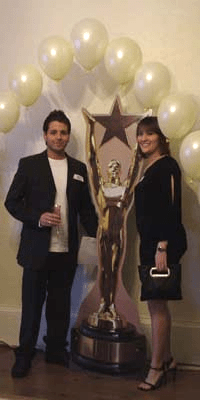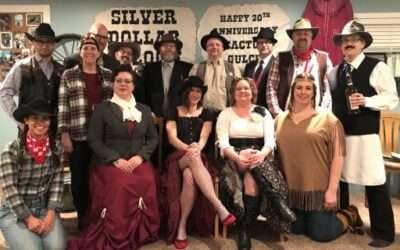As I mentioned in our review of 2014, I am updating Hollywood Lies and bringing it into our current format.
However, one of the things that it making this harder (and therefore taking much more time than it otherwise should), is that I am making all the characters gender-neutral so that they can be played by men or women.

My reasons for doing this are threefold:
- Firstly, it helps make casting easier if you haven’t got to make sure you’ve got the right number of male and female guests. We include a few gender neutral characters to help with numbers, but making all the characters gender neutral takes that issue away completely.
- Second, it means that when we are asked for an all-female game, we can direct customers to Hollywood Lies. (While we get the occasional request for an all-female game, we almost never get a request for an all-male game.)
- Third, Hollywood Lies is set in the modern day and we shouldn’t be constraining any of our roles by gender.
For those of you who have played Hollywood Lies – yes this does mean that there will be some plots and characters that will change. That’s just making the task of updating the game more complex.
An invaluable tool for names
I’ve found Wikipedia’s Unisex Name page invaluable for finding gender-neutral or unisex character names . It’s a great place for getting gender-neutral names that we haven’t used before (it’s very easy to fall back on the usual ones).
Challenges in writing unisex characters
The main challenge in writing unisex characters is avoiding the use of he/she/him/her. Usually I find that a sentence can be simply rewritten to avoid these pronouns – and at worst case I end up using the character’s name instead.
(I don’t like using “they” as it often doesn’t sound right.)
Some examples:
- Original: Edward is your agent and charges a standard 10%. He was Tom Speed’s agent as well.
Rewritten: Eddie is your agent and charges a standard 10%. Eddie was Tom Speed’s agent as well.
Original: James was fired after setting fire to the office. He was seen shortly before the fire drunk and smoking in a prohibited area. He hasn’t worked since.
Rewritten: Joss was fired after setting fire to the office. Joss was seen shortly before the fire drunk and smoking in a prohibited area, and hasn’t worked since.
Plot challenges
As well as changing the written language, turning all the characters gender neutral is having a few other changes.
For example, our games often include characters who are romantically linked to each other. That might be as a married couple, or someone in love with another character, or possibly even having an affair with another character.
Not everyone is comfortable with same-sex romances, so I am removing these relationships. (And that changes several plots – such as those characters who are married or seeing each other and so on.)
Arguably, this gives Hollywood Lies a wider appeal: it becomes more kid-friendly and also less constraining in terms of who can play which character.
A challenge
Writing Hollywood Lies to be completely gender-neutral is proving to be a bit of a challenge, for all of these reasons. I’m having to carefully check the wording of every character, and also writing a few new plots to replace those that I’ve dropped. The core game is the same, though.
And no, I’m not sure when it will be ready. 2015 is all I’m committing myself to at the moment!



A couple of our games can also be cast for any gender; I find it surprisingly easy to forget and use pronouns! ‘They’ sounded a little odd when I first started using it, but I’ve seen it used more often since then, and it doesn’t seem so weird anymore.
Regarding romance: I didn’t remove romance plots from my game. Instead, I ask people beforehand whether there are any genders they’d be comfortable or uncomfortable with having a romance plot with. It adds an extra constraint, but I find it’s no more difficult than any other casting quirk – and quite a lot of people don’t seem to mind, or even appreciate being given the option if same-gender romance is their preference.
Thank you very much for your thoughts!
I don’t have a problem with singular ‘they’ — I use it in speech — but I feel while it’s still intrusive for some people, it’s preferable to avoid it in our written materials. What we don’t want is for the reader’s eye to snag on it and go ‘eh what?’, which I think it still does a bit for some people.
As for romance, mm, that’s what I do myself too — but we don’t really want to put that extra casting wrinkle onto our customers. It’s a tough enough job already! Plus, as Steve says, the absence of romance makes the game suitable for a wider audience.